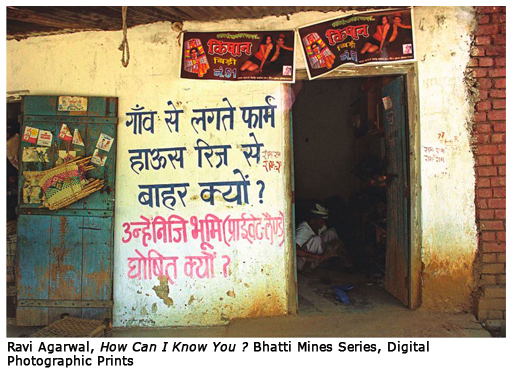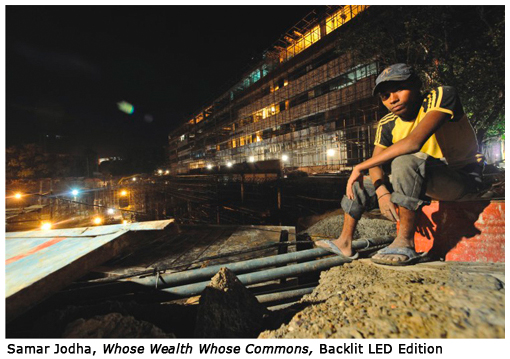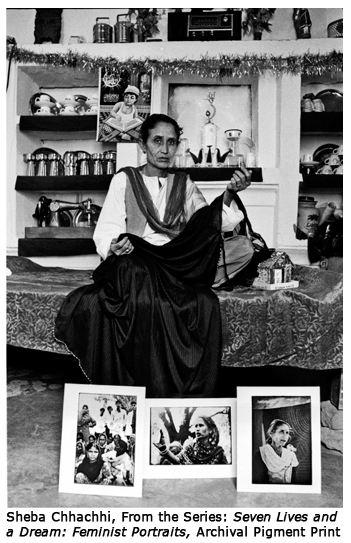- Publisher's Note
- Editorial
- In Conversation with Kanishka Raja
- Definitional Lack in an Inclusive World: Cutting Edge as Responsible Art
- Democratization Through Cutting Edge Art
- Mumbai for Cutting Edge
- Moments in Time (And a Little While After)
- In Transition
- Tip of Our Times
- Srishti School of Art, Design and Technology – A Cradle for Creative Excellence
- Cutting the Edges of Architecture
- Overview Cutting Edge
- The Matter Within: New Contemporary Art of India Featuring Photography, Sculpture and Video
- Generation in Transition: New Art from India
- Indian Master Painters at India Art Festival
- Life, Luxury & the Avant-Garde
- Mother India: The Goddess in Indian Painting
- The Last Harvest: Paintings of Rabindranath Tagore
- Asia Society Museum Presents Exhibition of Rabindranath Tagore's Paintings and Drawings
- Stieglitz and his Artists: Matisse to O'Keeffee
- Beauty of Unguarded Moments
- Across Times, Across Borders: A Report on the Chinese Art Exhibition
- A Summer in Paris
- Random Strokes
- The Emperor’s New Clothes and What It Really Means
- Understanding Versus Adulation
- What Happened and What’s Forthcoming
- Occupy Wall Street, The New Economic Depression And Populist Art
- Unconventional with Witty Undertones
- Narratives of Common Life and Allegorical Tales In Traditional and Modern Forms the Best of Kalighat 'Pats'
- Colours of the Desert
- Unbound
- I Am Here, An Exhibition of Video Self Portraits at Jaaga
- Staging Selves: Power, Performativity & Portraiture
- Venice Biennale Outreach Programme A Circle of Making I and II
- Cartography of Narratives, Contemplations on Time
- Joseph Kosuth: The Mind's Image of Itself #3' A Play of Architecture and the Mind
- Maharaja: Reminiscing the Glorious Past
- Art from Thirteen Asian Nations
- Tibetan Arms and Armor at Metrpolitan Museum of Art
- The Art of Poster Advertisement
- Unusual Angles and Facets of Museum Buildings
- Elegant Fantasies
- Art Collection and Initiatives
- Art Events Kolkata
- Mumbai Art Sighting
- Art Bengaluru
- Musings from Chennai
- Preview
- In the News
ART news & views
Staging Selves: Power, Performativity & Portraiture
Volume: 4 Issue No: 22 Month: 11 Year: 2011
Review
by Snehal Tambulwadikar
Mumbai. It's all about the presence of absence in the spaces; and how the selves define the same. the self, the other all are presented/represented in or outside the space and here the space is re-created for us to invade theirs with our 'selves'.
The show at Sakshi Art Gallery, Staging Selves: Power, Performativity and Portraiture stands out for many reasons, curation being one of the significant, curated by Maya Kovskaya with works by Ravi Agarwal, Sheba Chhachhi, Gauri Gill, Samar Jodha and Tejal Shah, Waswo X. Waswo, Malekeh Nayiny and O Zang. The show started on September 2 and continued till September 25, 2011.
 In the series Seven Lives and a Dream- Feminists Portraits by Sheba Chhachhi arguably marks the shift in contemporary photography in India from traditional documentary to self consciously staged photography. The artists has worked in dialogue with feminists activists who spanned the class spectrum, allowing her subjects to determine for themselves the defining personal effects with which to surround themselves, and set up the representations of self. Likewise for Balika Mela Gauri Gill participated in local mela for girls in rural Rajasthani community. Samar Singh Jodha has documented the living conditions of commonwealth games workers in Whose Wealth? Whose Commons? Han Bing, in his New Culture Movement stages portraits of rural migrant labourers, posing with brick in hand, and the way people used to traditionally hold a book for their portrait in china during 1920's. Malekah Nayiny has tried to connect images and objects during her recent pat and accomplish a kind of personal alchemy in the incoherence. In Bhatti Mines Ravi Agarwal advocates for the community living in periphery of Delhi, struggling to maintain their homes and livelihood while the city seeks to expel them as slum 'squatters'. O Zhang's Daddy & I and Gauri Gill's the Americans, both focus on urban populations, and return to the question of community membership. Tejal Shah's Women Like Us/I AM tries to reconfigure the gaze around group of women who do not fit into the dominant notions of 'woman' in India.
In the series Seven Lives and a Dream- Feminists Portraits by Sheba Chhachhi arguably marks the shift in contemporary photography in India from traditional documentary to self consciously staged photography. The artists has worked in dialogue with feminists activists who spanned the class spectrum, allowing her subjects to determine for themselves the defining personal effects with which to surround themselves, and set up the representations of self. Likewise for Balika Mela Gauri Gill participated in local mela for girls in rural Rajasthani community. Samar Singh Jodha has documented the living conditions of commonwealth games workers in Whose Wealth? Whose Commons? Han Bing, in his New Culture Movement stages portraits of rural migrant labourers, posing with brick in hand, and the way people used to traditionally hold a book for their portrait in china during 1920's. Malekah Nayiny has tried to connect images and objects during her recent pat and accomplish a kind of personal alchemy in the incoherence. In Bhatti Mines Ravi Agarwal advocates for the community living in periphery of Delhi, struggling to maintain their homes and livelihood while the city seeks to expel them as slum 'squatters'. O Zhang's Daddy & I and Gauri Gill's the Americans, both focus on urban populations, and return to the question of community membership. Tejal Shah's Women Like Us/I AM tries to reconfigure the gaze around group of women who do not fit into the dominant notions of 'woman' in India.

 The hanging images of girls portraying themselves locating their identity as female selves are followed by the imagery of women relocating their identity as fe 'males'. The both together unease one where the females are fighting to be females and other where they are trying to come of out their identity. What and whose identity is this? At the same time the works of Waswo X. Waswo, O Zang and Malekeh Nayiny make an interesting statement, Nayiny staging the lived life again, O zang the life given by one to the other and Waswo the altered life.
The hanging images of girls portraying themselves locating their identity as female selves are followed by the imagery of women relocating their identity as fe 'males'. The both together unease one where the females are fighting to be females and other where they are trying to come of out their identity. What and whose identity is this? At the same time the works of Waswo X. Waswo, O Zang and Malekeh Nayiny make an interesting statement, Nayiny staging the lived life again, O zang the life given by one to the other and Waswo the altered life.
The works of Ravi Agarwal and Samar Singh Jodha make a good element as they portray the lives of completely others, who are and who are highlighted as so. Sheba Chhachhi's work goes to another parameter, where the self is staging the selves.
The whole creation of other space enhances the quality of impact, the curation of the show promises the curatorial practices in India. The works stand strong on their 'space' value. The visual moves ahead of the media, the viewer is submitted to the interiors of room, the otherness of the other makes one feel other himself, the heteropia of selves delineate you from the ease of yours. The media here defies the 'self', rather than revealing the stages, it reveals you. Most significantly, the works make a statement through the space rather than as individuals, the created space is like setup for performance, without which the staging would not have been successful.